
Vassilis E. Koliatsos, MD, MBA
email: [email protected]
Vassilis Koliatsos, Professor of Pathology (Neuropathology), Neurology, and Psychiatry and Behavioral Sciences, is the head of the Laboratory. Dr. Koliatsos trained in systems neuroscience with Mahlon DeLong and cellular and molecular neuropathology with Don Price. His main interest is mechanisms of neural injury and repair. He has characterized a number of neurotrophic factors for brain cholinergic and spinal cord motor neurons and initiated experimental therapies of traumatic and degenerative diseases with stem cells and their progenies. In recent years, he turned to the problem of traumatic brain injury, both as morbidity in and of itself and as model for neurodegenerative disorders, with emphasis on white matter injury. He is on the faculty of the graduate program of Pathobiology of Disease and leads the Brain Trauma and Degeneration Program. A clinical neuropsychiatrist, he also sees patients with TBI and degenerative dementias. Dr. Koliatsos has received a Javits Neuroscience Investigator Award from NINDS and a 2018 Discovery Award from Johns Hopkins University.
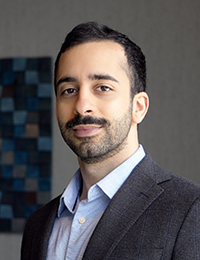
Athanasios S. Alexandris, MBChB
email: [email protected]
The junior faculty member in the group and Research Associate in Pathology (Neuropathology), Dr. Alexandris has a background in human neuropathology and focuses on common mechanisms underlying neurodegenerative diseases and neural injury, with an emphasis on axonal pathology and Wallerian degeneration. He joined the Koliatsos lab in 2018 as a postdoctoral fellow and became a faculty member in 2023. His primary research interests include SARM1 signaling in models of axonopathy and understanding the mechanisms of collateral axonal plasticity following neurotrauma. His broader interests include axonopathy in demyelinating diseases and human synucleinopathies.
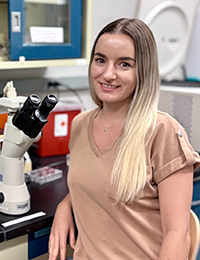
Aleksandra Labuz, MS
email: [email protected]
Aleksandra Labuz, Lab Manager/Sr. Research Specialist in the Koliatsos Lab, earned her Master’s degree in Molecular Biotechnology from Jagiellonian University in Krakow, Poland. She joined the lab in May 2024 and serves as the lab manager and a senior research specialist. Her research interests include neurodegenerative diseases and epilepsy. In the lab, she focuses on in vitro models of axonopathy and their molecular mechanisms and has the oversight on mouse colonies.
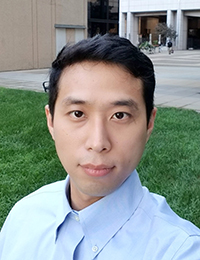
Shinwon Ha, PhD
email: [email protected]
Shinwon Ha, Senior Research Specialist in the Koliatsos Lab, has a PhD in Molecular Biology and Neuroscience and specializes in molecular techniques and methodologies. His primary research focus is trauma-associated proteinopathy as a harbinger or amplifier of neurodegenerative diseases, especially Alzheimer’s disease.

Talha Ahmed, MS
email: [email protected]
Talha Ahmad, Research Specialist II in the Koliatsos Lab, earned his M.S. in Biotechnology from Johns Hopkins University and joined the lab in March 2025. He is currently working on the role of SARM1 and stress-activated pathways in Wallerian degeneration in the long tracts using CRISPR-Cas9 technologies and anatomical as well as behavioral readouts. His responsibilities also include behavioral testing, tissue sectioning, and histological analysis to support the lab’s broader efforts in understanding mechanisms of axonopathy and neurodegeneration.

Monir Shayesteh Far, PhD
email: [email protected]
Monir Shayesteh Far, senior postdoctoral fellow in the Koliatsos Lab, earned a Ph.D. in Cellular Neuroscience at the Iran University of Medical Sciences. She has a background in neurodevelopmental disorders and in-vitro cellular modeling using human induced pluripotent stem cells (hiPSCs). She is currently working on the role of SARM1 and stress-activated in Wallerian degeneration in the long tracts using CRISPER-Cas9 technologies and anatomical as well as behavioral readouts.
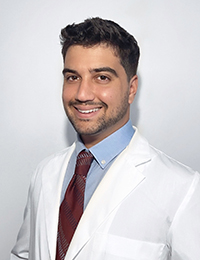
Thalis Asimakopoulos, MD
email: [email protected]
Thalis Asimakopoulos, postdoctoral fellow in the Koliatsos Lab, has an M.D. from the University of Athens, Greece and a background in Pain Medicine. His research focus is vagus nerve stimulation (VNS) in neurotrauma and degeneration, both as a research tool and a therapeutic intervention. He also explores experimental therapeutics for white matter disease based on molecular signals triggering Wallerian degeneration.

Shihao He, MD
email: [email protected]
Shihao He, postdoctoral fellow in the Koliatsos Lab, is a neurosurgeon with research experience in neurovascular diseases and iPSC-derived organoid modeling. He earned his M.D. in Neurosurgery from Capital Medical University and received research training at Stanford University. In the Koliatsos Lab, Dr. He focuses on transplantation-based regenerative strategies to restore the injured visual system after neurotraumas, aiming to advance translational therapies for neurological injuries and related disorders.
Graduate Students
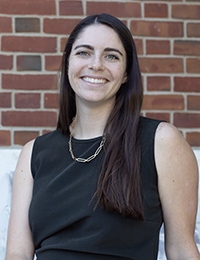
Georgia Lawlor, BS
email: [email protected]
Georgia Lawlor, Ph.D. student in Electrical Engineering in the lab, has an M.S. in Biomedical Engineering from Purdue with a background in analog circuit design and implantable devices. Focus of her thesis is the role of vagus nerve stimulation on peripheral inflammation and neuroinflammation, including on seizure susceptibility and the development of wireless devices driving vagus stimulators and recording inflammatory cytokine concentrations.

Sadid Khan, BS
email: [email protected]
Sadid Khan, the second Ph.D. student in Electrical Engineering in the lab, has a B.S. in Biomedical Engineering from Purdue. His focus is novel vagus nerve stimulator technologies to enable fascicle-specific stimulation and to optimize treatments for neurological and non-neurological disorders, including neurotrauma.
Undergraduate Students

Anthony Peng
email: [email protected]
Anthony Peng is currently a sophomore at Johns Hopkins studying neuroscience and philosophy. His primary interests lie in the mechanisms behind blunt force trauma axonopathy. In his free time, he works in EMS under the Arbutus Department for Baltimore County and play paintball as well.
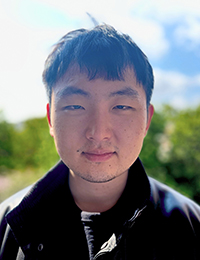
Victor You
email: [email protected]
Victor You, pre-medical student at Johns Hopkins (Class of 2026), pursues a double major in Molecular and Cellular Biology and Public Health. With a strong interest in the brain, he joined the Koliatsos lab in the fall of 2024 and works on novel quantitative methodologies for assessment of white matter injury.

Tristan Faze
email: [email protected]
Tristan Faze is a junior and pre-med student studying Molecular and Cellular Biology. He joined the Koliatsos Lab in May 2025. His research interests center around pharmacological interventions of white matter disease and developing quantitative assessments of nerve health. In his free time, Tristan enjoys hiking, cooking, and working out.
